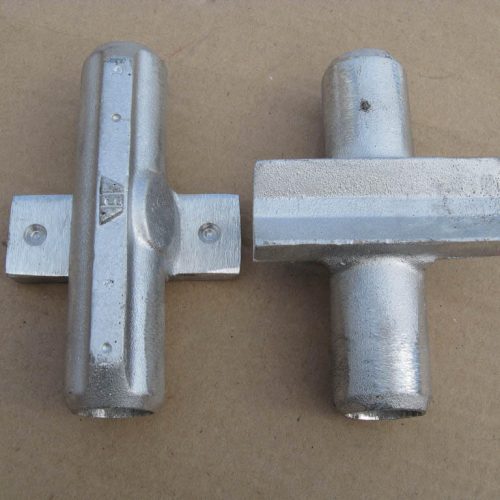TP Castings delivers food-grade aluminium castings with trusted alloy and coating solutions designed for superior hygiene, durability, and cleanability.
In food and beverage manufacturing, material selection is essential to ensure hygiene and long-term performance. Food-grade aluminium castings are widely used because of their corrosion resistance, light weight, thermal conductivity, and machinability. Choosing the right alloy and coating guarantees components that are durable, cleanable, and compliant with strict industry standards.
What “Food-Grade” Really Means (and Who Defines It)
The term “food-grade” refers to materials that can safely come into contact with food without causing contamination, migration, or deterioration in quality. In Australia, the Food Standards Code under Food Standards Australia New Zealand (FSANZ) sets expectations that materials must not taint food or compromise safety. Globally, frameworks such as NSF/ANSI standards in North America and EU Regulation 1935/2004 outline requirements for food-contact materials.
Compliance is more than a label; it involves selecting alloys and coatings that meet hygiene requirements while maintaining structural performance. Manufacturers are expected to provide material certificates, coating process details, and evidence that components can withstand regular cleaning and sanitation cycles.
Common Aluminium Casting Alloys for Food-Related Applications
Choosing the right alloy is central to ensuring that aluminium castings are both hygienic and fit for purpose. Below are the four most commonly used alloys in food-related applications.
A356 (Al-Si-Mg)
A356 is one of the most widely used alloys for food-contact components. It offers excellent corrosion resistance, good mechanical strength (particularly in T6 heat-treated condition), and an excellent response to anodising.
• Applications: Moulds, pump housings, and food-processing machinery.
• Key advantage: Smooth surface finish and cleanability after machining or polishing.
356 (Close Variant of A356)
Similar to A356, alloy 356 delivers strong castability and corrosion resistance. It is particularly valued for its consistent performance and adaptability in applications where surface finishing is critical.
• Applications: Equipment requiring anodised surfaces to meet hygiene standards.
• Key advantage: Established foundry reliability and strong compliance record.
A380 (Pressure Die-Cast Alloy)
A380 is often selected for high-volume production, thanks to its excellent fluidity and dimensional stability in thin-wall castings.
• Applications: Machine housings, fixtures, and precision structural parts.
• Key advantage: Cost-efficient in large runs. Care must be taken regarding copper content when used in direct food-contact applications.
535 (Al-Mg Alloy)
Alloy 535 is noted for its outstanding corrosion resistance, especially in environments exposed to salts or chlorides.
• Applications: Components in seafood and brine-based food processing.
• Key advantage: Superior performance under harsh cleaning regimes or saline conditions.
Coating & Treatment Options for Food-Contact Aluminium
While alloy choice is important, surface treatments and coatings play a crucial role in ensuring hygiene, cleanability, and long-term durability.
Clear/Type II Anodising
This anodising method forms a non-reactive oxide layer, enhancing corrosion resistance and surface hardness.
• Provides a smooth and cleanable finish.
• Offers protection against staining and chemical attack.
• Suitable for food-contact areas when dye-free.
Hardcoat (Type III) / Specialised Hard-Anodic Systems
Hardcoat anodising produces a thicker, denser oxide layer, improving wear and chemical resistance.
• Withstands repeated cleaning cycles, including caustic and acidic detergents.
• Extends service life in abrasive or high-alkaline conditions.
• Recommended for parts exposed to heavy use or aggressive sanitation regimes.
PTFE-Based and Ceramic-Like Coatings
These coatings provide additional release and non-stick properties while enhancing corrosion resistance.
• Useful for moulds or surfaces requiring easy product release.
• Suitable for applications with moderate temperature exposure.
• Require verification of compliance with food-contact regulations.
Achieve Compliance and Cleanability with TP Castings’ Food-Grade Aluminium Castings
At TP Castings, we bring over three decades of expertise in producing large, complex non-ferrous castings with precision finishing. Our team works closely with clients to ensure that every project meets the highest standards of cleanability, durability, and regulatory compliance. If your business requires dependable solutions in food-grade aluminium castings, contact us to let us know your requirements.
Related Blog Article: TP Castings: Delivering Efficiency in Aluminium Casting for Complex Industrial Applications

